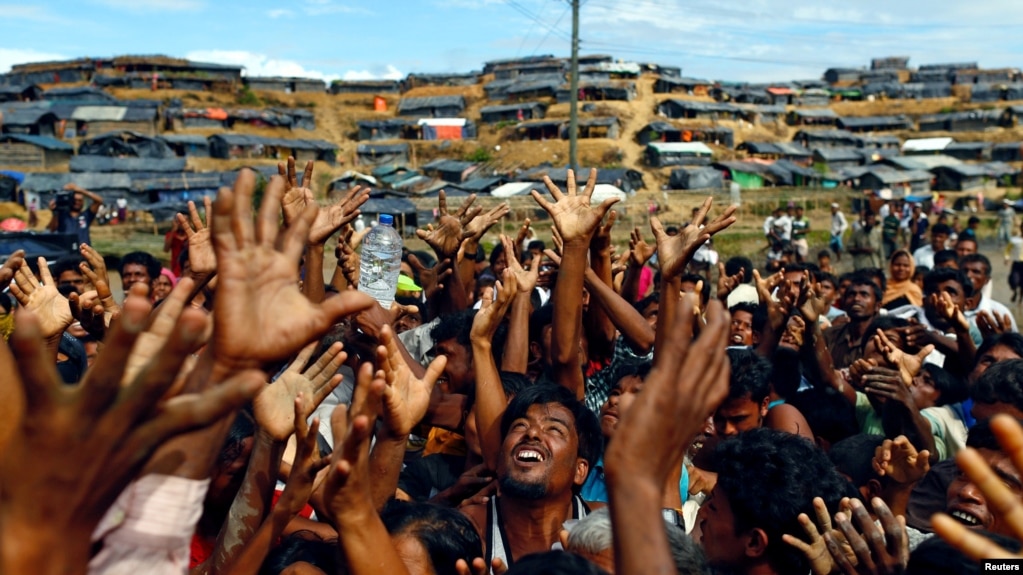Burma
Understanding the Rohingya crisis in Myanmar

Two sides to Burma's elections

Aung San Suu Kyi.
By Giles Ji Ungpakorn, Turn Left Thailand
Leaving oil in the soil, from Durban's coast to Ecuador's Amazon

The decrepit 40-year-old tanker, MT Phoenix, lost its anchor mooring on July 26, 2011, and was pushed to the rocky shoreline in Christmas Bay, 25 kilometres north of Durban.
By Patrick Bond, Durban
August 2, 2011 -- Links International Journal of Socialist Renewal -- There's no way around it: to solve the worsening climate crisis requires we must accept both that the vast majority of fossil fuels must now be left underground, and that through democratic planning, we must collectively reboot our energy, transport, agricultural, production, consumption and disposal systems so that by 2050 we experience good living with less than a quarter of our current levels of greenhouse gas emissions.
That's what science tells our species, and here in South Africa a punctuation mark was just provided by a near-disaster in Durban -- host of the world climate summit, four months from now -- during intense storms with six-metre waves last week. A decrepit 40-year-old tanker, MT Phoenix, lost its anchor mooring on July 26 and was pushed to the rocky shoreline in Christmas Bay, 25 kilometres north of the city.
Burma: Asian left parties condemn attacks on workers' rights
Statement initiated by Working People Association (Indonesia) and Network of Progressive Youth Burma
[If your organisation would like to sign, please email:international@prp-indonesia.org.]
September 16, 2010 -- We, the undersigned organisations, strongly condemn the military junta of Burma for its new decree to curb workers’ right to form trade unions and its harsh punishments against any industrial action.
The military junta of Burma -- the State Peace and Development Council (SPDC) -- decreed a new regulation on August 20, 2010, at a meeting in Rangoon attended by industry employers, government ministers and Burmese military officials, including Lt-Gen Myint Swe of the ministry of defence. It stated that, whoever launches or participates in industrial protests demanding better rights or conditions will be fired and blacklisted. The reason for the decree, labour activists in Burma believe, is that the junta wants to prevent further industrial action and employers don’t want their workers taking action to demand better wages, so now they can fire those who protest and stop them from getting jobs elsewhere.
Burma: Regional left support for workers’ struggle
February 13, 2010 -- The statement below has been signed by the Working People’s Association (Indonesia); Confederation Congress of Indonesia Union Alliance; the Singapore Democratic Party; the Socialist Party of Malaysia; Socialist Alternative (Australia); Socialist Alliance (Australia); Socialist Worker New Zealand; Young Democrats (Singapore); Partido ng Manggangawa (Philippines); Congress of South African Trade Unions; Partido Lakas ng Masa (Philippines); World Federation of Trade Unions (Asia Pacific Region); Movement for the Advancement of Student Power (Philippines); Canadian HART; Free Burma Campaign (South Africa).
If your organisation would like to sign this statement, email international@prp-indonesia.org.
* * *
Workers at Burma’s Taiyi shoe factory and Opal 2 garment factory began a strike on February 8, 2010. They are demanding a salary increase, a reduction of working hours and the provision of a clean space for meals.
The strike started in the Mya Fashion garment factory in the No. 3 Factory Zone of Yangon’s Hlaing Thrayar Township.
Statements on the Burmese struggle for democracy from the Socialist Party of Malaysia, the Indonesian solidarity movement, the Australian Socialist Alliance and the Philippines' Partido ng Manggagawa.
Socialist Party of Malaysia

